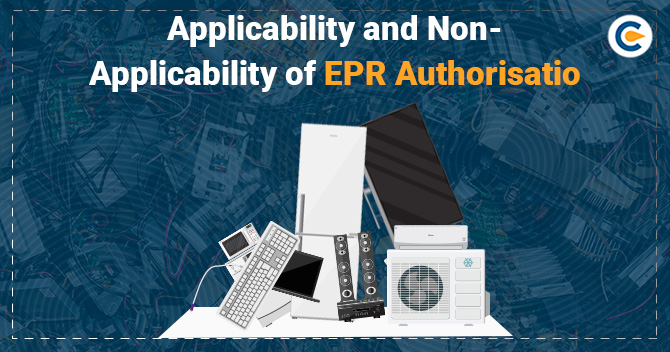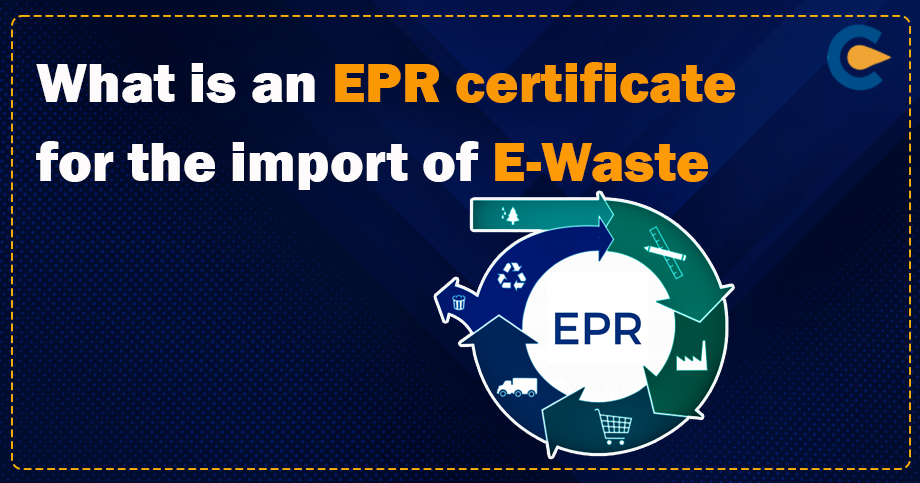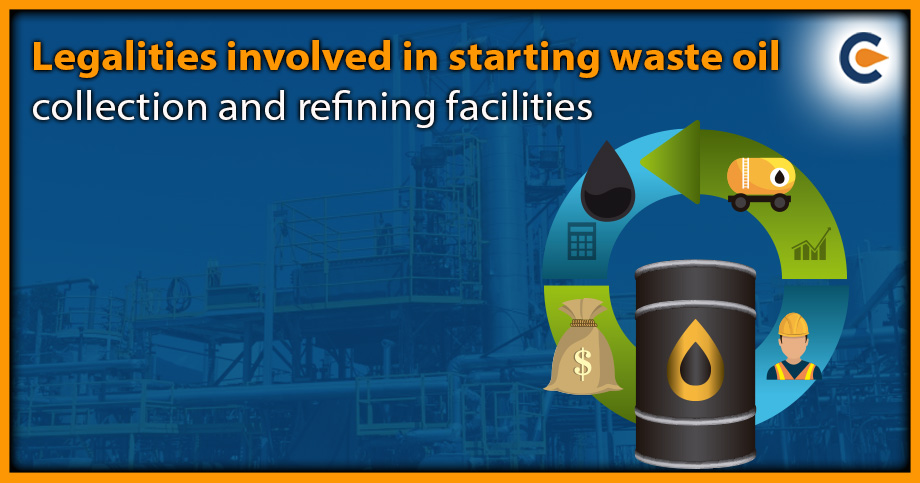EPR Authorization is mandatory for producers of electrical items and single used plastics in India. The provisions regarding EPR Authorisation are mentioned under the E-waste management rules and plastic wastes management rules. EPR Authorization seeks to reduce the generation of wastes in the form of end-of-life electrical products and plastic. EPR stands for extended producer responsibility, which obligates producers to take care of wastes generated during manufacturing and from the consumer’s end to reduce its environmental impact. This write-up talks about the applicability of non-applicability of EPR authorisation.
EPR provisions under EWM rules and PWM rules
The EPR provisions under EWM rules and PWM rules obligate producers to gather, transport, process, and dispose of aforesaid wastes in an eco-friendly manner. Further, these provisions compel producers to shift their focus to a circular economy that supports the concept of reuse and recycling. The Government sets out certain targets under these rules for the accumulation of plastic and e-waste generated from the consumer’s end. It’s worth noting that CPCB holds the authority for the grant of EPR authorisation in India.
Applicability of EPR Authorisation for E-waste producer
According to the E-waste Management Rules, 2016, the producers of schedule I products are mandated to apply for EPR Authorisation via form 1.
Form 1 is divided into five parts, namely;
- General Information
- Estimation of E-waste Generation
- EPR Plan*
- Reduction of Hazardous Substances
- List of documentation
EPR plan is a document that reflects the proposed waste accumulation targets to be achieved by the producers or manufacturers.
Significance of EPR authorisation under Plastic Waste Management Rules
Increasing plastic wastes from the consumer’s end is a serious concern for the Government. Though the local bodies contribute to waste minimisation, their efforts seem to be outweighed by the rapidly increasing post-consumer plastic waste. The environmental crisis created by plastic waste is unprecedented and permanent. Keeping this in view, the Government has introduced EPR provisions under the PWM rules and the EPR targets for waste collection.
EPR applicability for PIBOs
- Under PWM rules, PIBOs (producers, importers, and brand owners) are obligated to set up a system with local bodies for the minimisation of plastic waste coming from the consumer’s end.
- Local bodies are liable for establishing the PWM system with the aid of PIBOs. Further, PIBOs functioning in more than two states are liable to obtain registration from CPCB, and those active in one or two states must obtain registration from respective SPCB.
- EPR action plan has to be furnished by PIBOs for obtaining such registration. CPCB has underpinned EPR action plan format required for obtaining said consent as per norm of PWM rules) in June 2019.
- PIBOs are obligated to meet EPR in all the States/UTs in which they are launching their offerings. EPR target for a specific state shall be equivalent to the quantum and type of plastic being launched by them in the market in the specific State /UT.
The PIBOs have three options according to Annexure I for EPR plan implementation for PWM in the States/UTs in which they are launching their products
- PWM via Own Distribution Channel
- PWM via Direct engagement with ULB, i.e. Urban Local Body
- PWM via engagement with WMA, i.e. Waste Management Agency which in turn sync with PIBOs, ULBs
But, it must be ensured that the net quantity and types of plastic waste administered via these options in a particular state/UT fulfil the EPR targets of the respective PIBO for the concerned State/UT. Waste Management Agency, if involved, shall be registered with the respective authority/ULB. Details of such Waste Management Agencies shall be intimated to the concerned SPCB/PCC by the designated state authority/ULB.
Key Points relating to the Applicability of EPR
- EPR provisions under PWM rule primarily focus on the reduction of waste created by the post-consumer single used plastic
- It also laid down annual collection targets for PIBOs based on the production volume and system adopted.
- EPR authorisation seeks e-waste producer to provide declaration regarding RoHS certification
- EPR action plan reflects the tangible aspect of waste accumulation that every producer has to prepare before applying EPR authorisation.
- The applicability of EPR has been confined to two legislations, namely EWM rules and PWM rules[1].
- The recycling, dismantling, and disposal units dealing with e-waste are exempted from EPR.
Conclusion
Ever-rising e-waste and post-consumer plastic wastes have created a serious environmental crisis in India. The EWM rules and PWM rules have provided a materialistic framework for waste minimisation. The plastic and electrical goods manufacturers have to discharge extended responsibilities under EPR to shift towards the circular economy.
Read our Article:How to get EPR (e-waste) Authorization?











